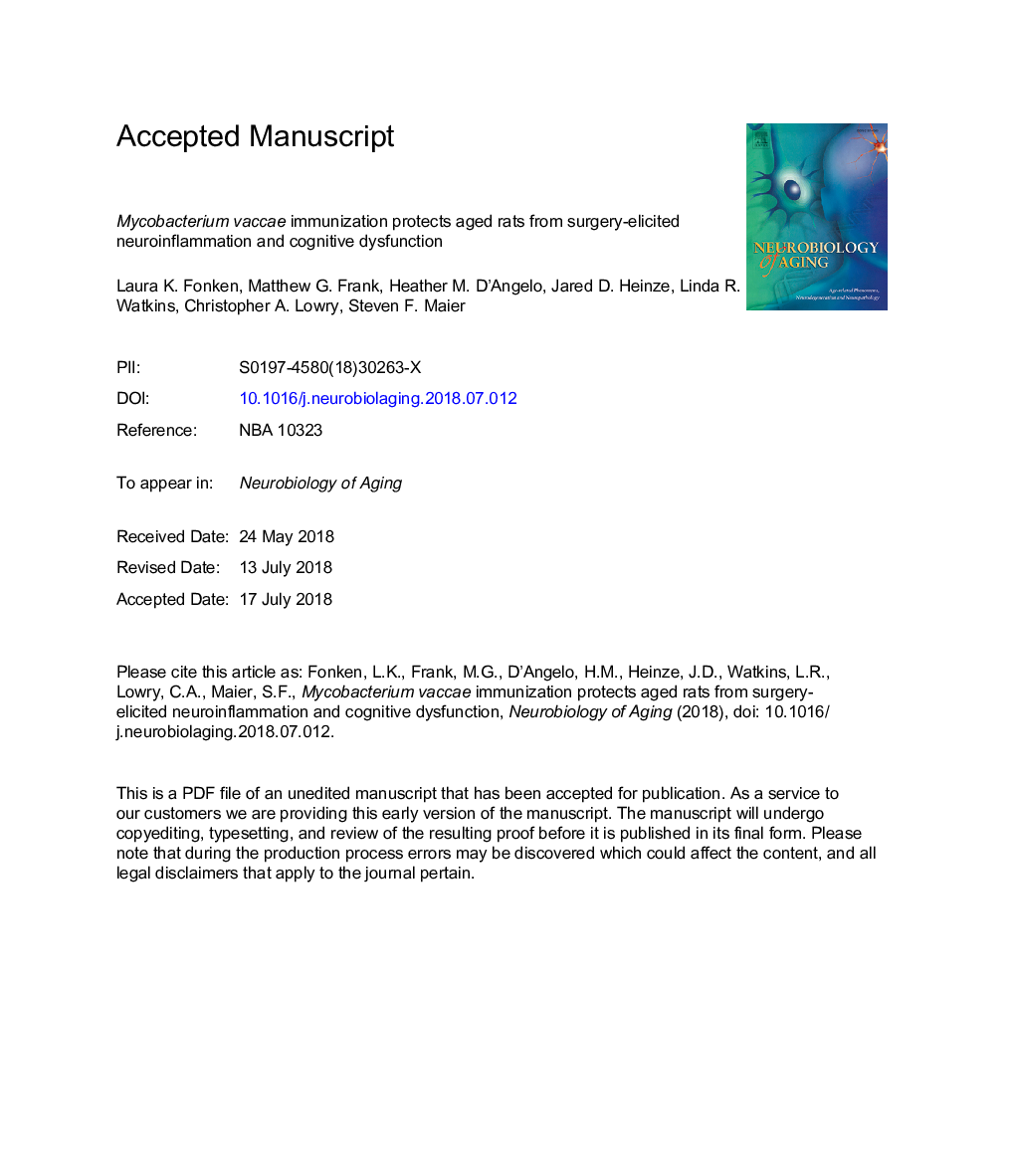| Article ID | Journal | Published Year | Pages | File Type |
|---|---|---|---|---|
| 6802803 | Neurobiology of Aging | 2018 | 37 Pages |
Abstract
Aging is a major risk factor for developing postoperative cognitive dysfunction. Neuroinflammatory processes, which can play a causal role in the etiology of postoperative cognitive dysfunction, are potentiated or primed as a function of aging. Here we explored whether exposure to a microorganism with immunoregulatory and anti-inflammatory properties, Mycobacterium vaccae NCTC 11659 (M. vaccae), could ameliorate age-associated neuroinflammatory priming. Aged (24 months) and adult (3 months) male F344XBN rats were immunized with heat-killed M. vaccae (3 injections, once per week) before undergoing a laparotomy or anesthesia control procedure. Aged, but not young rats, showed postoperative learning/memory deficits in a fear-conditioning paradigm. Importantly, M. vaccae immunization protected aged rats from these surgery-induced cognitive impairments. M. vaccae immunization also shifted the aged proinflammatory hippocampal microenvironment toward an anti-inflammatory phenotype. Furthermore, M. vaccae immunization reduced age-related hyperinflammatory responses in isolated hippocampal microglia. Overall, our novel data suggest that M. vaccae can induce an anti-inflammatory milieu in the aged brain and thus mitigate the neuroinflammatory and cognitive impairments induced by surgery.
Related Topics
Life Sciences
Biochemistry, Genetics and Molecular Biology
Ageing
Authors
Laura K. Fonken, Matthew G. Frank, Heather M. D'Angelo, Jared D. Heinze, Linda R. Watkins, Christopher A. Lowry, Steven F. Maier,
